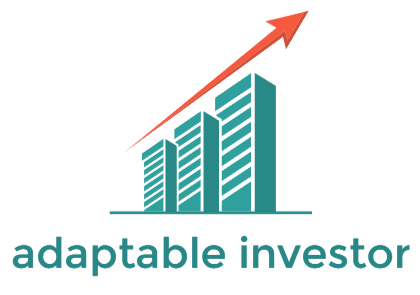Some of the biggest fortunes of 2020 have been made on a new kind of investment called a “SPAC,” also called “blank check companies.”
The acronym stands for Special-Purpose Acquisition Vehicle, and it’s an alternative to the traditional IPO that can let investors like you buy shares in a company “before” it goes public.
Here’s what I mean.
See, everyone but the big banks hates IPOs. For the companies going public, IPOs mean tons of regulation, paperwork, and millions of dollars in fees to the banks.
For investors like you and me, it means waiting to invest until all the hedge funds have made their money already.
With a SPAC, that all gets turned on its head.
A SPAC is a publicly-traded company with only one goal – to merge with a private company. After the merger, the new company takes over the SPAC’s place on the stock exchange, and early investors in the SPAC get their shares exchanged for the new company’s.
The beauty of it is, you can buy shares in a SPAC before it has merged with a private company, or even before they’ve announced who they will merge with!
All you have to do is find a SPAC run by the right team of people and with enough financial backing. SPACs have to disclose this, and have a limited time, usually around 24 months, in which to find and merge with a company.
And before they find a target company, a SPAC’s shares usually trade significantly lower than they will later, because there’s still uncertainty about what will happen.
So in a sense, you’re buying shares in a company before it goes public – and at a sizable discount, too!
Once a merger is announced, a SPAC’s shares will usually spike. Once the merger is complete, your SPAC shares get replaced with the new company’s shares, usually worth even more.
SPAC’s have been around since the 1990s, but they were few and far between. As late as 2014, only 12 companies went public through SPACs in America, raising a combined $1.8 billion.
In 2019, those numbers had skyrocketed to $13.6 billion across 59 SPACs. 2020 has beaten that record handily, with SPACs having raised over $31 billion by mid-September!
And the best SPAC deals are still to come. Here are the five best SPACs to invest in now:
Pershing Square Tontine Holdings Ltd. (PSTH)
Billionaire Bill Ackman is one of the most successful investors of all time. Most recently, he hit the headlines for his smart hedge strategy that meant he made a return of $2 billion in March, even as the markets were crashing because of Covid.
Now he’s launched the largest SPAC yet, called Pershing Square Tontine Holdings Ltd. Loaded with $4 billion, PSTH is looking to merge with a “mature unicorn” that’s worth $10 billion or more, has a strong balance sheet, and is a likely candidate “for inclusion in the S&P 500 index.”
In short, think “the next Tesla.”
This makes PSTH a once-in-a-lifetime opportunity to get in on the ground floor with one of the greatest living investors as he sets out to strike one of his largest deals. Don’t let this one pass you by.
RedBall Acquisition Corp. (RBAC)
Billy Beane, played by Brad Pitt in the movie Moneyball, revolutionized baseball by getting rid of talent scout “impressions” of how good potential players were, and instead looking at the raw numbers.
By hiring mathematically great players that for one reason or another weren’t being valued by the rest of baseball, he turned the Oakland A’s from a losing franchise with a small budget into one of the most, if not the most, cost-effective teams in baseball.
Now almost every baseball team in the country has adopted Beane’s approach.
2020, of course, has been a horrible year for sports, with Covid restrictions emptying stadiums and cancelling games.
For Beane, that’s an amazing opportunity. After all, Covid won’t be forever, and once it lifts, sports will come back. That means sports teams right now are seriously undervalued.
So together with co-chairman Gerry Cardinale, a former Goldman Sachs partner who helped create the YES Network, Beane has created RedBall Acquisition Corp. to use its $575 million to buy and turn around a sports team while they’re still cheap.
Investors speculate that RBAC will try to merge with a European soccer team, and in June the SPAC did acquire 85% of Toulouse FC, a team in France’s Ligue 2. Whether that’s the ultimate target for RedBall remains to be seen.
But with Billy Beane at the helm, you can bet whatever team RBAC ends up buying will be worth the money.
Dragoneer Growth Opportunities Corp. (DGNR)
Because a SPAC doesn’t actually make any operations until and unless it merges with a target company, it’s crucial to only invest in SPACs with great management teams.
And you’d be hard-pressed finding a team more experienced than the one behind Dragoneer Growth Opportunities Corp. The SPAC’s CEO, Marc Stad, was once featured as one of Fortune’s “40 Under 40” list of the most influential people in business, and was an early backer in successes such as Spotify and Uber.
DGNR’s other directors include David Ossip, CEO of software company Ceridian, and Sarah Frier, the CEO of neighborhood social network Nextdoor and previously the CFO of Square.
Together, the team is looking for growth companies in the tech, healthcare software, or fintech areas – each one a sector that’s gotten a massive boost from Covid.
With Stad, Ossip, and Frier on your side, the odds are in your favor
Flying Eagle Acquisition Corp. (FEAC)
Flying Eagle started life with $600 million in funding from founding duo’s Jeff Sagansky and Harry Sloan’s previous SPAC, DiamondEagle.
That one was hugely successful and ended up taking DraftKings Inc. (DKNG), the hugely successful online betting platform, public, as well as funding Flying Eagle. The only problem the team has now is that they aren’t quite sure what to buy next. FEAC’s prospectus states that they are not restricting themselves to any industry or sector, and are instead keeping an open mind.
With successful SPACs in gambling, airline media, hospitality, and more, not limiting themselves looks like a very good idea. Chances are their track record of successful SPACs will continue, making FEAC a good bet.
Churchill Capital Corp IV (CCIV)
Last but not least, we have former Citigroup banker Michael Klein’s fourth SPAC. If his first three are anything to go by, this one is going to be a huge winner.
Klein’s first stab at SPACs, Churchill Capital Corp., raised $690 million and last May merged with Clarivate plc (CCC), an analytics company focused on the scientific community. The stock has been on an almost constant upwards trajectory since and is up 66% this year alone.
Churchill Capital Corp II also raised $600 million but is still searching for a merger target.
Churchill Capital Corp. III just closed on the largest SPAC deal ever, acquiring healthcare analytics company MultiPlan for $11 billion.
You won’t find a better track record than Klein’s in the SPAC, which makes CCIV one of the best SPACs around.





